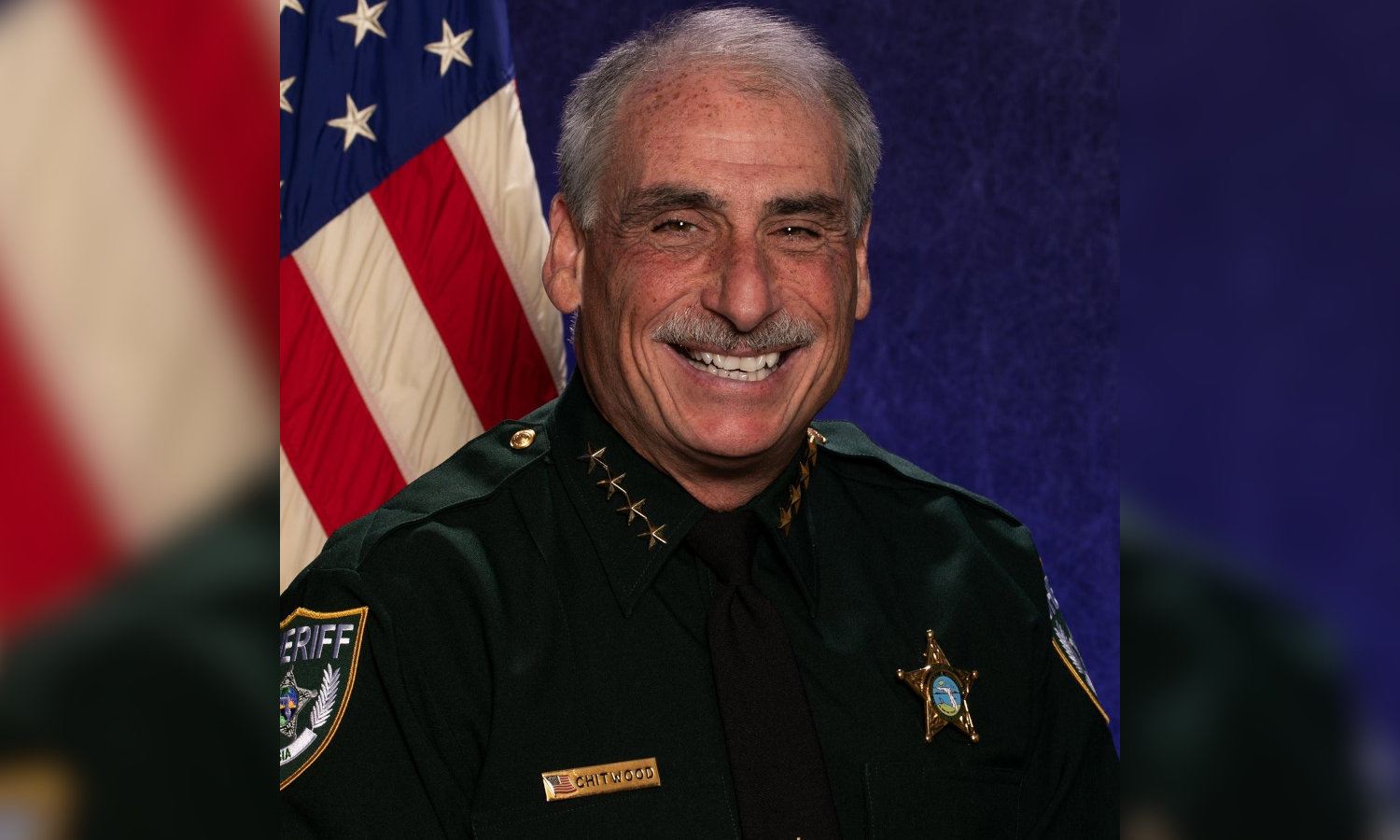newsdaytonabeach · Volusia Sheriff Mike Chitwood On The Department of Juvenile Justice Daytona Beach, FL – After learning that some juvenile offenders were only obligated to write a 250-word essay for violent crimes in Volusia, some began to beg the question “what can be done to fix the Department of Juvenile Justice?” The answer, according to Volusia Sheriff Mike Chitwood, is to “turn the system on its head.” This comes after Volusia deputies arrested a 14-year-old male who reportedly shot a man in the leg after he came to buy marijuana from him. According to Chitwood, the same teen, who was identified as Juan Pallasco, has been arrested for gun crimes before. One specific incident brought up by Chitwood was an Instagram video featuring Pallasco and other juveniles pointing guns at a camera as they made threats to shoot classmates. The consequence for that crime? A curfew, and a 250-word essay on “the importance of abiding by the law.” This was after the Department of Juvenile Justice (DJJ) determined that Pallasco’s risk to reoffend was moderate, according to the sheriff’s office. “We have judges and DJJ personnel that want to tell a kid who threatens to kill somebody to write a 250-word essay. Are you kidding me?” said Sheriff Mike Chitwood at a press conference about the incident on Friday. “And now he’s out there in the middle of the day dealing dope and shooting people.” Sheriff Chitwood spoke to News Daytona Beach on Monday (Nov. 15) to elaborate further on the alleged shortcomings of the DJJ. One issue brought up by Chitwood was the fact that Volusia County’s juvenile justice system—part of the 7th Judicial Circuit—is currently dealing with 27 juveniles all facing gun-related charges. That’s on top of nine other juveniles from out of the Volusia area currently in custody for the same type of crimes. Throughout the rest of the 7th Judicial Circuit—which also encompasses Flagler, St. Johns, and Putnam—there are 10 juveniles facing gun-related charges in Putnam, while St. Johns and Flagler are currently dealing with a single juvenile each. “Why does Volusia County have so many juveniles who like to play with guns?” said Chitwood. “And yet we’re writing essays and putting them on unenforceable curfews.” According to Chitwood, the first thing that can be done to “fix” the system is to hold violent offenders responsible for violent crimes. In an interview with News Daytona Beach, Chitwood said officials need to realize there’s a difference between “stealing a candy bar” and violent crimes. “Making TikTok videos with a series of firearms and talking about shooting somebody in the head is not normal behavior for a 13-year-old,” said Chitwood. Chitwood says reoffending is likely to occur because of the DJJ’s Disposition Recommendation Matrix. The matrix, which can be found on the official DJJ website, determines how serious the offense was—whether it’s a simple citation, misdemeanor, felony without violence etc.—and what the course of action should be, depending on the defendant’s risk to reoffend. In Pallasco’s case involving the Instagram video, he was determined to be a moderate risk for unlawful possession of a firearm by a minor, which is a first-degree misdemeanor in the State of Florida. With that in mind, the DJJ’s matrix recommends some kind of diversion and non-DJJ probation or community probation supervision. But Chitwood argues that this shouldn’t be the case, especially since someone like Pallasco has a criminal history, adding that Pallasco was a confirmed gang member in Connecticut. “Why wouldn’t DJJ bring that up to the judge?” said Chitwood. “The judges follow what DJJ’s recommendation is. So why wouldn’t they say that this kid is a gang member and that he’s from another state?” The sheriff also stated that this wasn’t the first time he’s had problems with the DJJ. Back when he was the police chief of Daytona Beach, Chitwood said there was a problem with older juvenile offenders who dropped out of school having to go back to class with younger classmates. “(At the age of 14 or 15) they’re putting you in a classroom with 12-year-olds and 13-year-olds,” said Chitwood. “After a while you’re pulling stolen cars over with 12-year-old kids in the car. They were putting these older kids back in middle school so they could finish. Now you got all these 12-year-old kids saying they learned from older students.” “That was my first fight with them back then,” added Chitwood. If given the chance to adjust the DJJ system himself, Sheriff Chitwood stated that he would change the current matrix system and change the DJJ’s mental health component. “A lot of these kids that we’re coming into contact with have severe mental health and behavioral issues,” said Chitwood. Another local and recent issue Chitwood brought up to reinforce his point involved a shootout between Volusia County deputies and two juveniles, both under the age of 15. In that case, a 14-year-old female was shot after firing a shotgun towards deputies. “If you go back, her problems begin in the womb,” said Chitwood. “I don’t think the system can handle her.” Chitwood later added that the same 14-year-old girl has already been Baker Acted 10 times. In addition, Chitwood referenced another situation where a 15-year-old resident of the First United Methodist Children’s Home—the same group home the 14-year-old girl came from—attacked and killed a security guard. That same teen was declared mentally incompetent to stand trial and was transfered instead to a low-security facility, per Chitwood. “He’s got anger management issues, he’s got a propensity to violence and they just throw their hands up,” said Chitwood. “Somebody has to handle those kids.” Another change for Chitwood would be to hold kids accountable for their actions. “If you want to be a big boy or a big girl and commit robberies or shoot people, you need to be treated accordingly and go from there. I’m not preaching that kids need to go to jail for life, but there’s got to be some sort of accountability.” The sheriff added that the decision to charge kids as adults doesn’t completely lie in the State Attorney’s hands, but the hands of the secretary of the DJJ.
Sheriff Chitwood: Something Has To Be Done About DJJ













